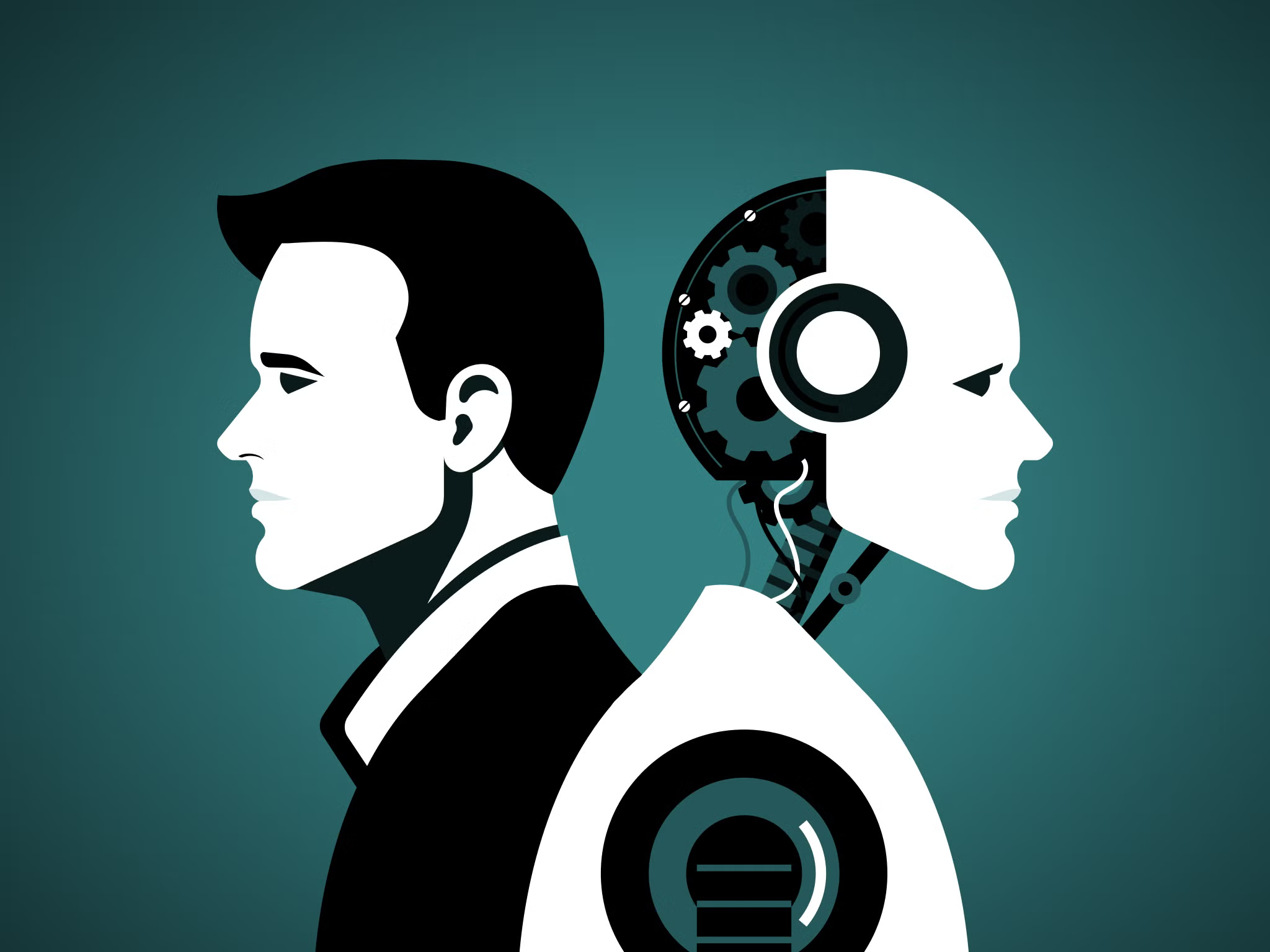
Navigating Ethical AI
Photo and Story by Kateri Tyrrell
On Wednesday April 10th, the School of Business here at Rutgers Camden held their fifth
annual business symposium. This year’s symposium discussed a topic that, though may seem
tired to some, begs to be further discussed as its influence in our daily lives continues to expand:
artificial intelligence.
This year’s symposium welcomed panelists Sean Boyce, founder of Nxtsetp consulting
which specializes in AI; Gil Kaminski, co-founder of Humelan, an AI-based hearing aid
company; Michael Kirchhoff, who shared insights on AI in healthcare; and Ojobo Agbo Eje, a
data specialist and author of A Layman’s Guide to Understanding Artificial Intelligence. Each
speaker brought their unique expertise, whether in content creation, healthcare, or data analysis.
Given its context within the School of Business, the panelists offered their perspectives
on AI through the lenses of marketing, healthcare, and data. However, as it is widely
acknowledged, artificial intelligence has permeated nearly every facet of our lives, not just the
realm of business. This new landscape is leaving many college-aged individuals, on the precipice
of graduation, and about to enter the workfield, wondering how to navigate this seemingly ever
evolving territory. Does one fight against the rising tide of artificial intelligence, or ride the wave
and learn how to work smarter not harder?
How AI works is, the creator feeds the AI tons of training data, the AI then analyzes the
data, recognizes patterns in the data, and makes predictions based on said patterns. There is
no doubt AI is helpful for many businesses; each panelist was quick to describe how AI has
helped make their business more efficient. However, as artificial intelligence is a young concept,
it has its flaws and needs some refining still. Gil Kaminski gave an example of the errors of AI. She
described this phenomenon as “biased data”.
In Kamiski’s example, she used Midjourney, an artificial intelligence that generates images.
She uploaded a picture of herself, and prompted Midjourney to generate an image of herself as a
CEO. All the photos that Midjourney conjured were of Kaminski as a man. She then prompted
the AI to make her into a nurse. Midjourney created a photo of her dressed in a tacky, old school
nurse’s uniform. These examples exemplify biased data. The AI was likely fed limited data based
on traditional gender roles, and thus created biased images. If not corrected, this sort of biased
data can be harmful as AI moves forward.
Speaker Ojobo Agbo Eje is a major proponent of creating ‘ethical artificial intelligence’. Eje
describes ethical AI as, “the development and deployment of artificial intelligence in a safe,
secure, humane and environmentally friendly approach”. In his presentation, Eje pointed out
common ethical issues within AI. One being biased data, just as Kaminiski touched on. Another
being copyright infringements, which may be all too common on AI channels such as ChatGPT,
that can write complete, compelling essays within a matter of seconds. As Kaminski touched on gender bias in AI, Eje brought race bias into the AI conversation. A study done by Joy Buolamwini, an African American graduate researcher at MIT, discovered that AI facial recognition programs had an easier time recognizing her face when she wore a white mask. This once again exemplifies biased data in growing artificial intelligence.
With the ethical errors of artificial intelligence in mind, Eje presented the “Five Pillars of
Ethical AI”. They are as follows: Fairness, where race and gender must be fairly represented;
Explainability, where the data that AI is trained on must be easily explainable; Robustness,
meaning the AI must be resistant to hackers; Transparency, where there needs to be easy access
to the AI’s data. Finally, data privacy, which is an ongoing concern in the modern technological
era; individuals must be able to consent to having their data shared.
In less than a decade, artificial intelligence has substantially impacted almost all areas of
our lives. However, it still has a long way to go. For college students, the looming prospect of
working in cooperation AI can seem daunting. Some college students may be familiar with using
AI for homework help. Others may worry about what it will look like competing with, or
working alongside AI. There is much to learn, and the climate of AI is ever evolving.
For college students and graduates entering the workforce, the presence of Artificial
Intelligence creates both opportunity and challenge. AI’s integration into every industry has
reshaped the workforce, demanding adaptability. While some fear AI’s encroachment on
traditional roles, it also offers efficiency and innovation.
College students must navigate this new and evolving environment, considering whether
to embrace AI as a tool to enhance one’s capabilities, or view it as a threat to job security.
Understanding AI’s potential and its errors are necessary when it comes to learning how to use AI
ethically and responsibly. Integrating AI fluency into one’s skill set will be essential for success
in the modern workforce. By mastering the ethical use of AI, college students can find
meaningful roles and contribute to the unavoidable synergistic future of artificial and human
intelligence.

